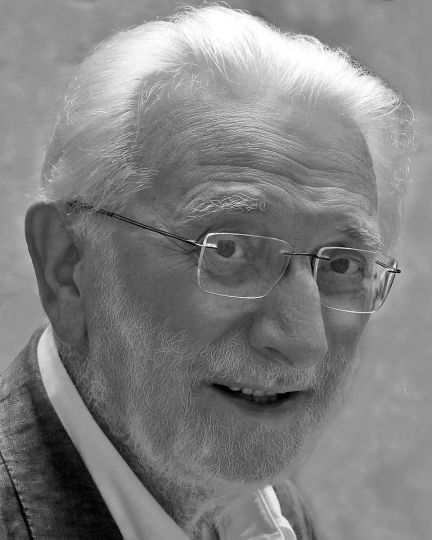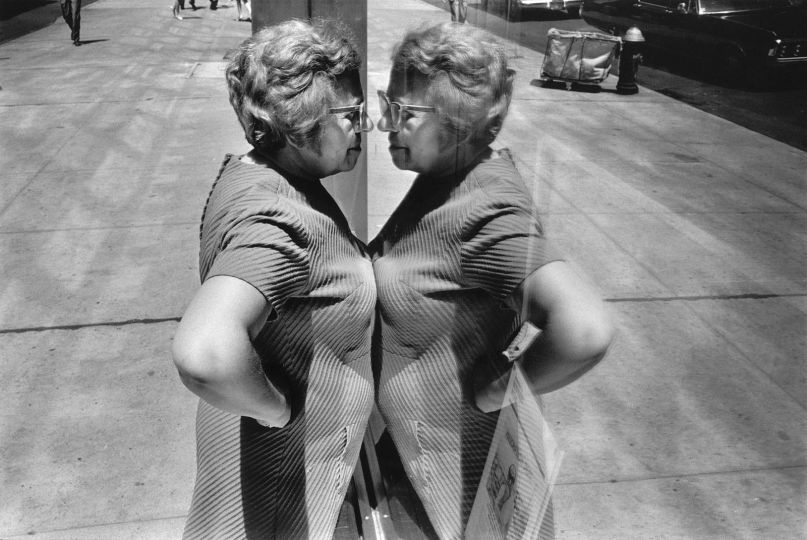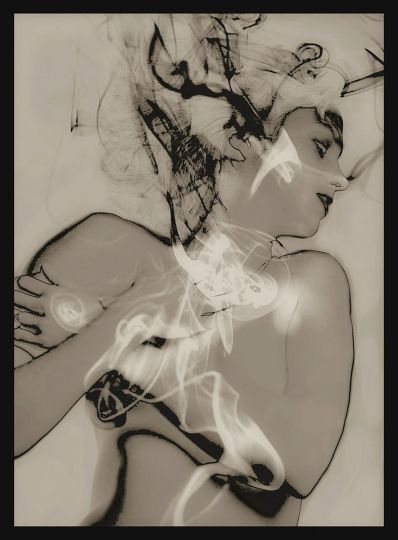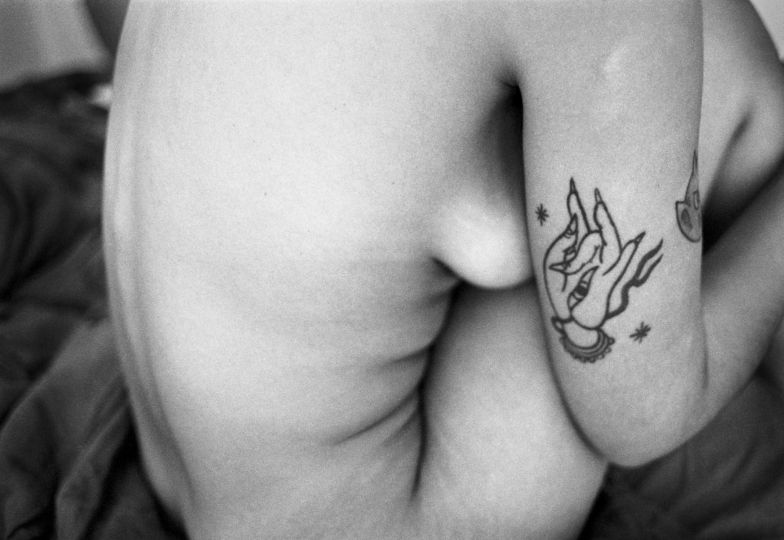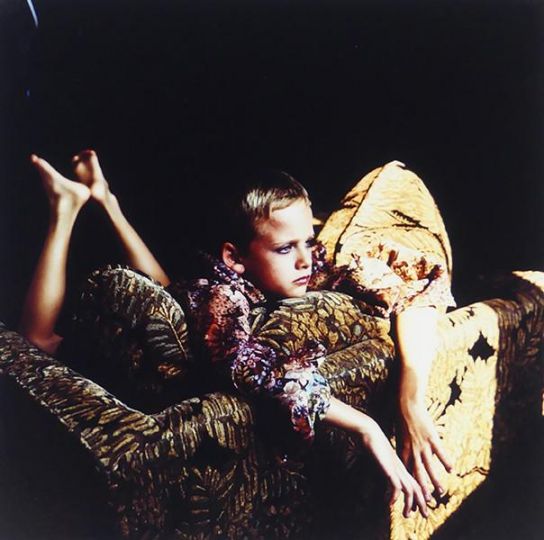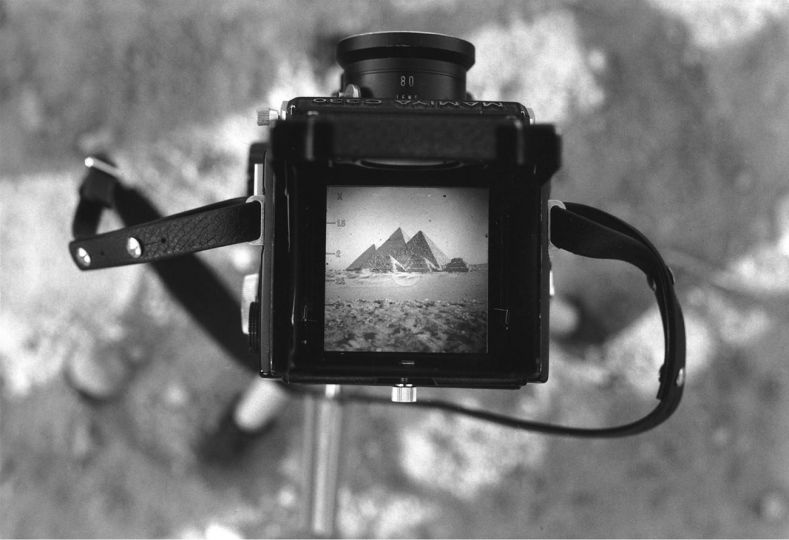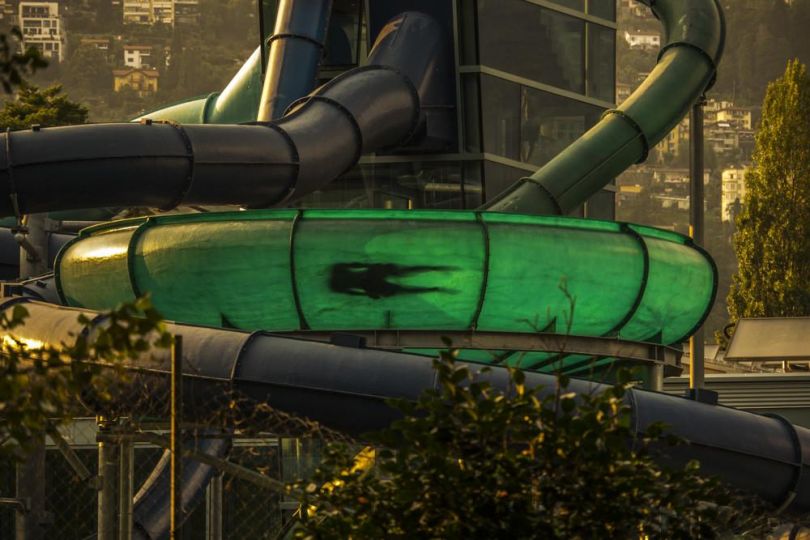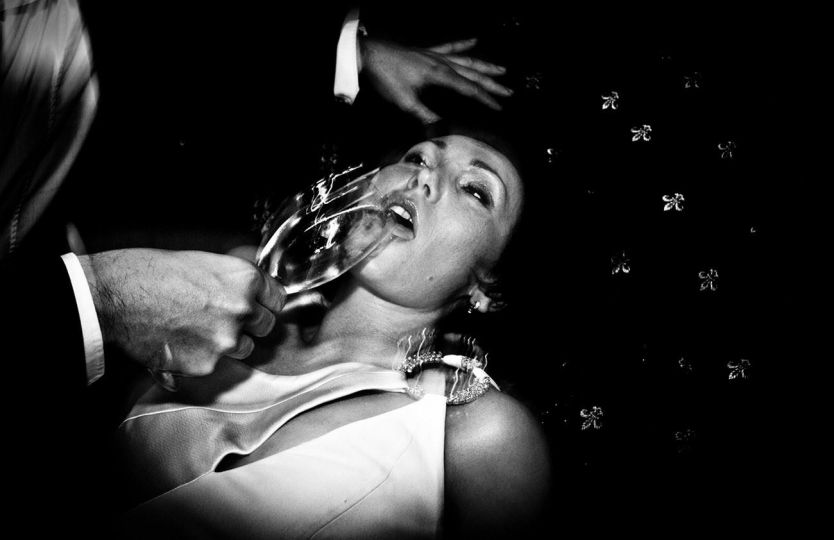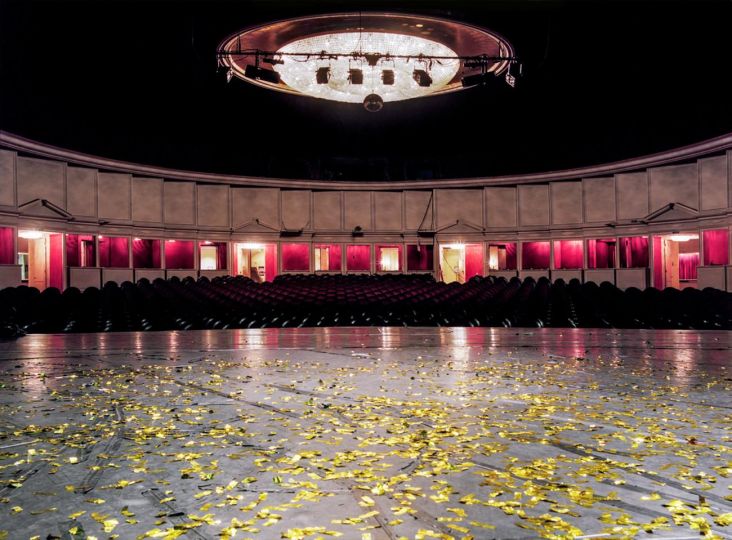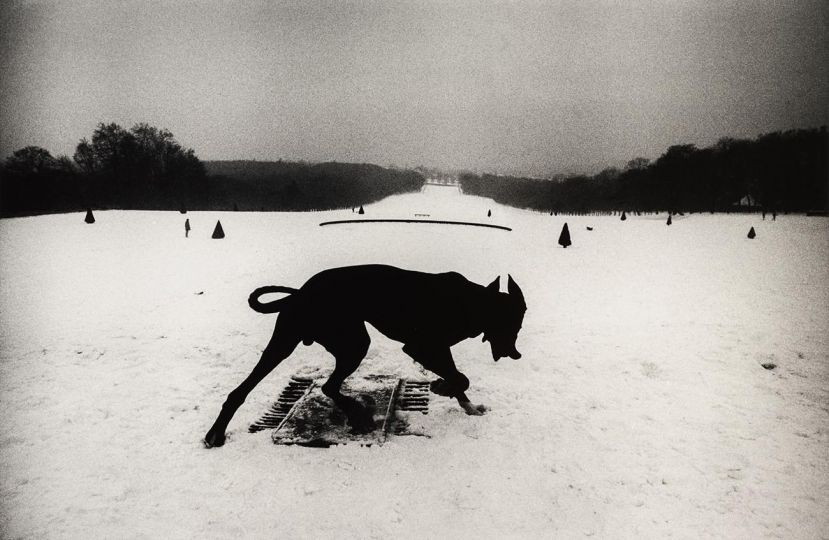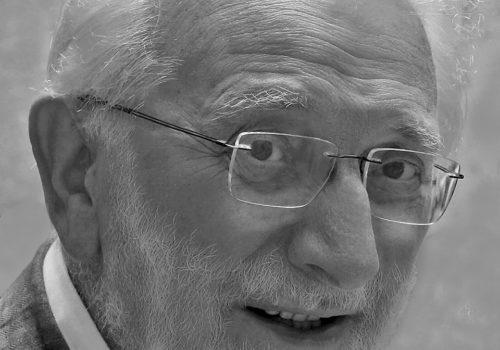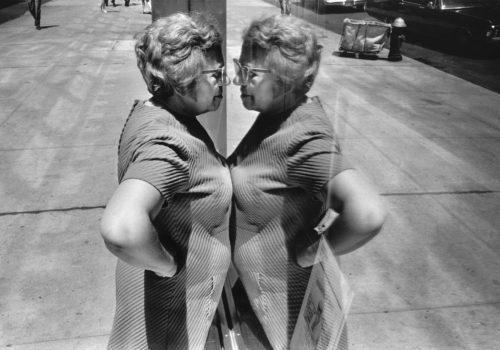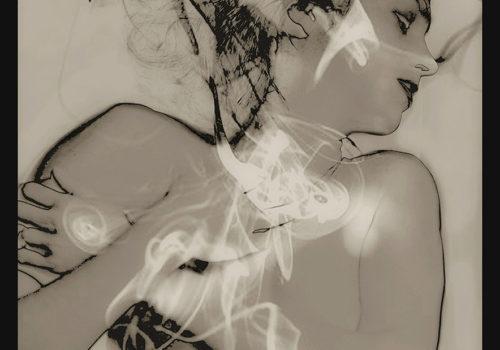In her preferred black and white images, Czech photographer Tereza Zelenkova presents a room and its curious inhabitant, evoking the fin de siècle movements of symbolism and decadence, to which the photographer pays homage, with references to the literature of Baudelaire, Rimbaud, and JK Huysmans. Together, these still lives, nudes, and portraits are a captivating inquiry into the cycle of decay and renewal, the relation of the individual to an interior, and the possibility of myth and spirituality in a disenchanted world.
These images, with a strong sense of detail, seem to come from another era, yet are surprising in their strong presence and newness; this is another, more mythical and ephemeral realm altogether. In this place, time has ceased to exist in its everyday, stupefying linearity. Still lives of baroque draperies, covered with dust, and a single Papaver somniferum – an opium poppy – halt the narrative of the other images, where a figure is seen lying on a bed, with impossibly long flowing hair, repeated in the flowing fabric of the silk skirt. On only one of the photographs a face is shown, but the eyes remain closed, as the character remains essentially unknown to the viewer. While the photographs, taken in an enigmatic building of which the viewer learns little, hint at a novelistic narrative, these scenes are rather from a mysterious novel never written.
In the texts that accompany the images, Zelenkova references the attempt to create an entire secluded world of one’s own, as was undertaken by the character Des Esseintes in JK Huysmans’ 1884 novel A Rebours (Against Nature). The inevitable failure and impossibility of such an endeavour, the tension between the imagination, the longing to live in such an imaginary place and the call of the outside world, the constant looking over one’s shoulder because of society’s norms, while acknowledged, are momentarily suspended in these strange and haunting images.
In Essential Solitude, an exhibition of her work in Amsterdam, both seeks to capture and question the profound experience of seeing, reading, dreaming and thinking; experiences that can never be fully shared and that one always necessarily experiences alone. Zelenkova invites the viewer into a “Ministry of Interior Life”, to use Huysmans’ words, that is accessible only through dreaming, contemplation, literature and art. Solitude may be in and of itself an experience that cannot be shared, but also an experience – in contrast to loneliness – that is increasingly hard to obtain in an online and obtrusive world.
Tereza Zelenkova, In Essential Solitude
April 14 – May 26, 2018
The Ravestijn Gallery
Westerdoksdijk 603-A
1013 BX Amsterdam
The Netherlands


